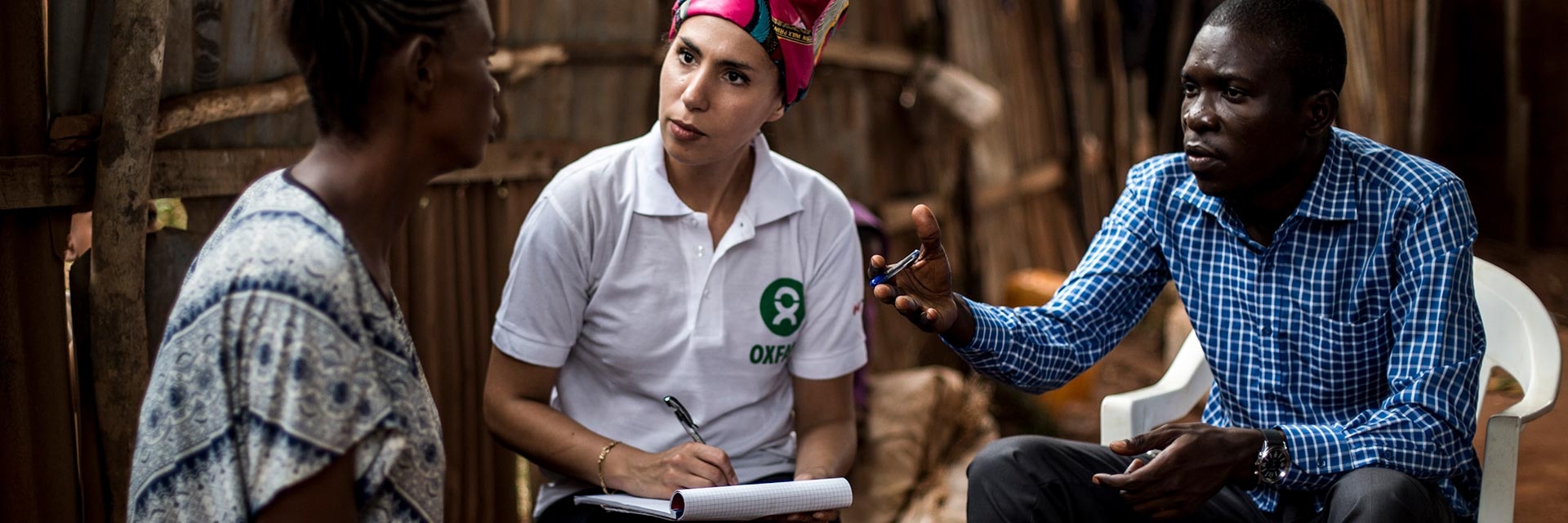
Interviewing displaced persons, living in a church in Kasai, DRC. Photo Credit : John Wessels/Oxfam
Telling the stories of humanitarian emergencies
"She had returned to school, but her classroom was empty," recalls Schéhérazade Bouabid about the teacher in the Democratic Republic of Congo, rejected by her community after being cured of Ebola.
"The parents didn't want to leave their children with her. They were afraid of the disease,” says Bouabid. “We helped her provide information to her family and friends so they would understand that she was well and truly cured. After that, the children came back and she was finally able to return to her job. It's amazing to be able to make that kind of difference in people's lives.”
After starting her professional life in project management in the cultural sector in Montreal, Bouabid left in July 2017 for a mission in the Democratic Republic of Congo as a communications advisor with Oxfam-Québec.
"When I arrived, there were humanitarian crises in five provinces of the country, including the food insecurity and Ebola outbreak that are still ongoing," she says. “My job was to be aware of these events and to make them known to the general public, by producing images and collecting testimonies that could be used by the media. I had to show the problems, of course, but also the ways the population comes together to deal with it.”
Guided by her own sensitivity and the advice of the humanitarian actors and journalists with whom she worked, Bouabid quickly learned what it takes to be accepted by local communities.
"Some people feel they have been abandoned by their governments for years," she says. “They develop a mistrust of anything that can be perceived as institutional, including humanitarian agencies. You can't just walk in and put your camera in people's faces. There is a whole process to gain their trust.”
Far from the image of misery that people might have of countries affected by humanitarian crises, Bouabid placed the dignity and strength of the people she met at the centre of her documentary work.
On World Humanitarian Day, she encourages Canadians to support humanitarian organizations:
"It is clear that donations are being well used to respond to crises, but also to strengthen local organizations," she says. “They are the best equipped to build the future of their region, which means responding to crises, but also reducing risks in a sustainable way.”